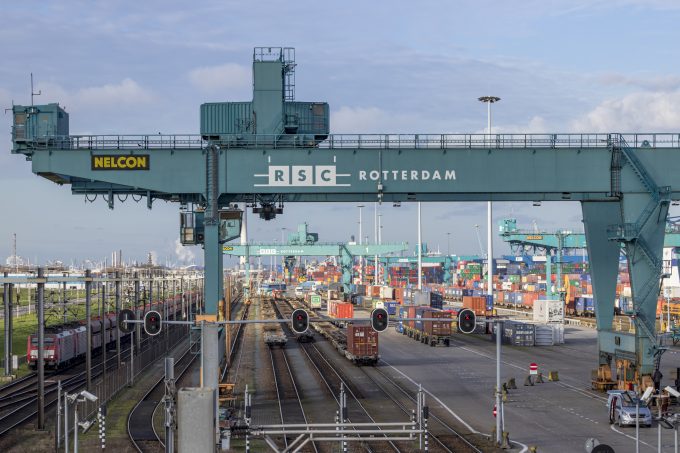NOCC adds third ‘ammonia-ready’ PCTC newbuild orderbook
Norwegian Car Carriers (NOCC) has added a third ‘ammonia-ready’ 7,000ceu LNG-powered ship to its two-vessel, ...
TFII: SOLID AS USUALMAERSK: WEAKENINGF: FALLING OFF A CLIFFAAPL: 'BOTTLENECK IN MAINLAND CHINA'AAPL: CHINA TRENDSDHL: GROWTH CAPEXR: ANOTHER SOLID DELIVERYMFT: HERE COMES THE FALLDSV: LOOK AT SCHENKER PERFORMANCEUPS: A WAVE OF DOWNGRADES DSV: BARGAIN BINKNX: EARNINGS OUTODFL: RISING AND FALLING AND THEN RISING
TFII: SOLID AS USUALMAERSK: WEAKENINGF: FALLING OFF A CLIFFAAPL: 'BOTTLENECK IN MAINLAND CHINA'AAPL: CHINA TRENDSDHL: GROWTH CAPEXR: ANOTHER SOLID DELIVERYMFT: HERE COMES THE FALLDSV: LOOK AT SCHENKER PERFORMANCEUPS: A WAVE OF DOWNGRADES DSV: BARGAIN BINKNX: EARNINGS OUTODFL: RISING AND FALLING AND THEN RISING

New European routes are building on the momentum of a post-pandemic shift to rail freight, but strikes in the UK are adding to continental energy cost worries, threatening the change.
In the past month, several new freight services across Europe have begun, including new links between France and Germany, while other providers have expanded the services being offered.
French multimodal operator Delta Rail said it would add a new container service to link Chalon-sur-Saone and Duisburg at the end of February, intended to offer competition to overland routes linking the Rhine with French ports, including Le Havre and Marseilles.
Shippers told The Loadstar the shift was spurred by a combination of greater environmental awareness as well as increasing unreliability linked to China’s long-running zero-covid policies.
Associate professor in supply chain analytics at University of Bradford Dr Kamran Mahroof said the number of new services coming online could be seen as a “good sign”, helping to “boost competition” between modes and addressing climate change.
“However, rail service providers need to show they can be reliable in normal conditions, with confidence particularly low in the UK,” Dr Mahroof told The Loadstar.
“Communicating clearly to customers how procedures within rail freight services, such as heated and insulated points, snow-clearing trains can be more efficient during disruption, is key. The main thing is communication.”
Dr Mahroof pointed out that over the course of the pandemic UK rail freight experienced its own boost with longer services catering for surging demand for healthcare products and food.
This spiking demand has levelled as supply chains have contended with a host of issues, including HGV driver shortages, increased costs, port disruption, supply chain bottlenecks and fallout from Brexit.
Greater investment in rail freight offered a range of economic and social benefits, he said, including removing up to 1.6bn lorry km from the UK supply chain alone, alongside reduction in associated greenhouse gas emissions, but energy worries threaten this.
France’s Lahaye Global Logistics said it experienced a 22% increase in rates at the start of this year, due to rising energy prices, and urged government intervention to halt the climb.
With shippers increasingly open to rail – “the most important development” for rail freight, according to Dr Mahroof, is the growing belief that government and industry must act to ensure they meet their claimed aims of sustainable, environmentally-friendly supply chains.
“If sufficient rail infrastructure is in place it has the potential to be cheaper than air and quicker than sea, all while being more sustainable and environmentally friendly,” he added.
Comment on this article